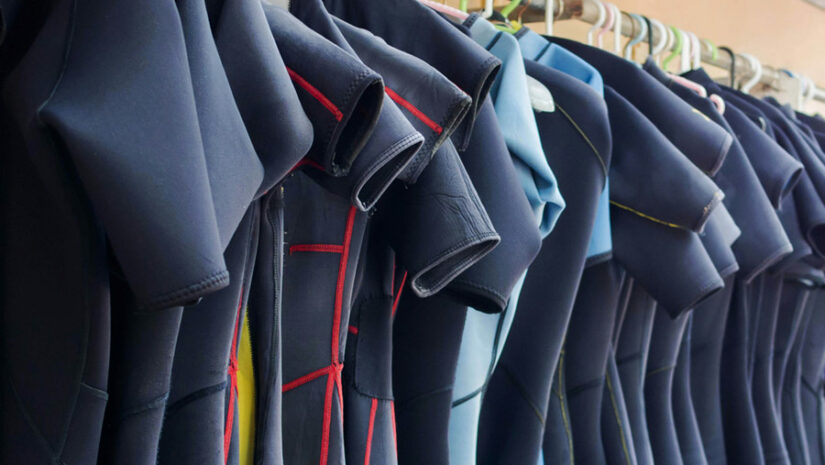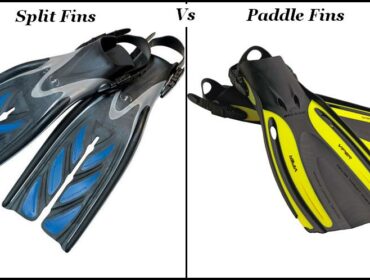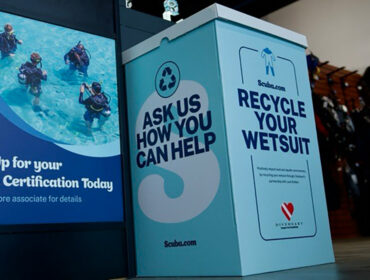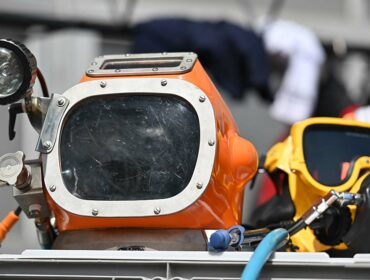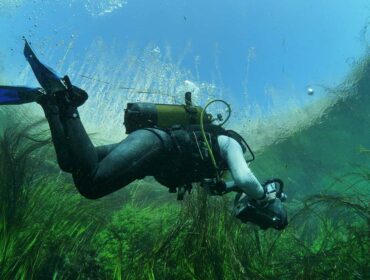For most divers that haven’t yet reached that stage to make an investment in a full set of scuba gear, namely regulators, gauges and BCDs, renting is always an option. And why not? Renting is a good option for times when money is tight and even for those with their own gear instead of lugging it all around not to mention new airline limits on baggage being a pain.
What scuba gear you should have of your own
Fins, snorkel, mask
We’ve always maintained the three pieces of equipment every diver should buy for themselves and take with them whenever they go diving are fins, snorkel and mask. While you may opt out of using a snorkel when you dive, it’s a good thing to have for that leisurely snorkel off the shore when you aren’t diving. As for the mask and fins, there’s only one where of getting the right fit- having your own!
Diveskins or rashguard
If you’re like me and can get the shivers in even warm temperate waters especially after a few days of diving, then may want to have some protection anything from Lycra diveskins to a rash-guard to shorties or full wetsuits will be worth the purchase. Rental suits tend to get a lot of wear, neoprene’s insulating qualities degrade with use, and there is often an odor issue. But if you’re traveling and want to rent and are ok wit what’s on offer than go ahead, it beats diving with the shivers that’s for sure.
Dive computer
A dive computer is another piece that you should consider buying. Yes, they can be a little expensive but even the most basic ones do the trick for safe diving and can be as affordable as $150.
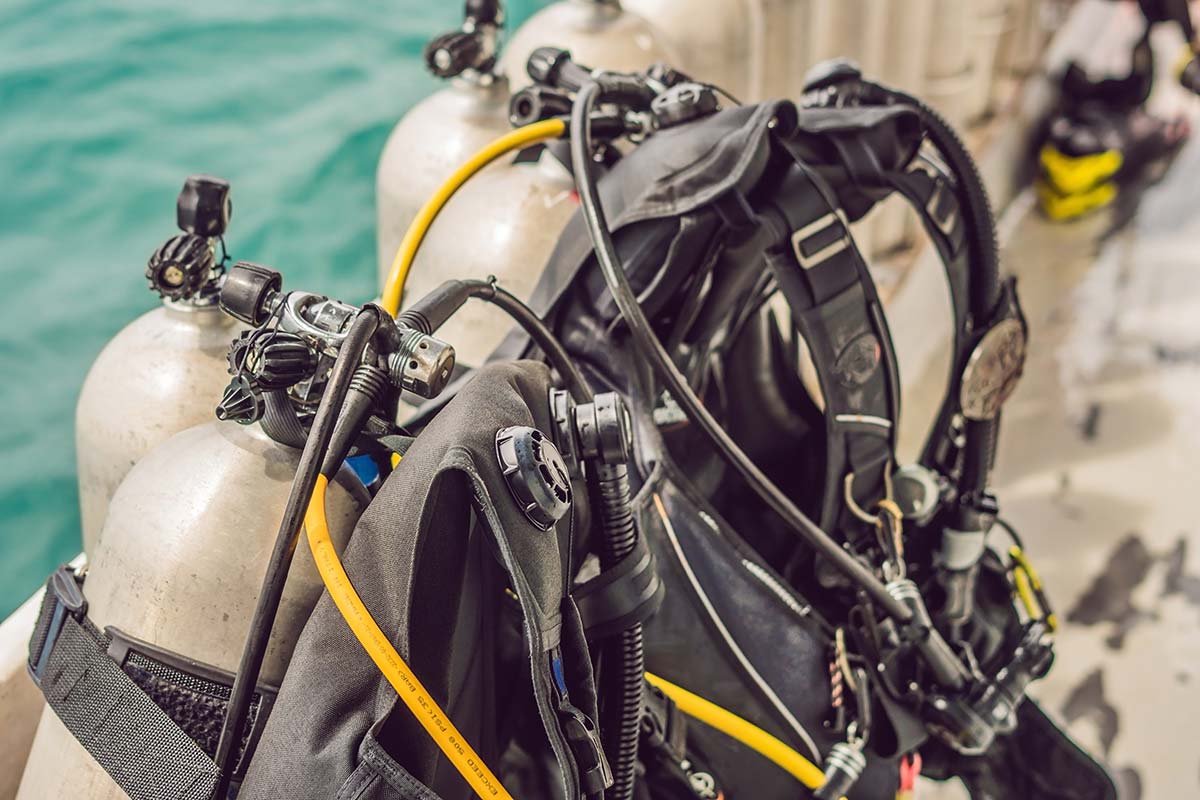
What scuba gear you can rent
These are the high-cost scuba gear you’re most likely looking to rent. They are also the most crucial items for your safety underwater so you want to be cautious when renting them. The most important thing to remember when renting scuba gear is to test the gear on site.
BCD
When it comes to Buoyancy Control Devices (BCDs) or Buoyancy Compensators (BCs) as they are also known, look for fit. See that it fits, snugly, not too loose nor tight. Test to verify that the inflate and dump controls are working (ask your local shop for a quick lesson). Make sure you’re comfortable with the location of the buttons on the BC, so you’re not looking for it when you badly need to adjust your buoyancy.
Regulator
Your primary life support underwater or your regulator is the most important part of equipment to worry about. You’ll want to ask the dive shop you’re renting from about how to examine and test the regulator for good function. More often then not, they’ll understand and be more than accommodating to help you test it out as you’re life’s on the line. Gauges usually come with the regulator and include depth gauge and pressure gauge and sometimes a compass.
Weights & tanks
Lastly, weights and scuba tanks are easily rented anywhere and almost everyone will rent rather than carry your own. There isn’t much to test in these pieces so don’t stress.

